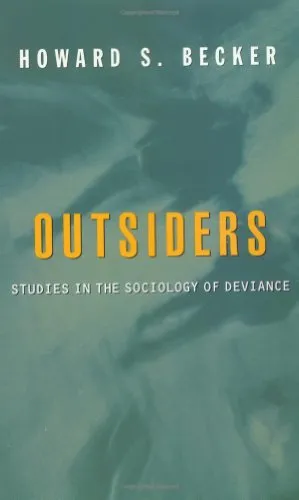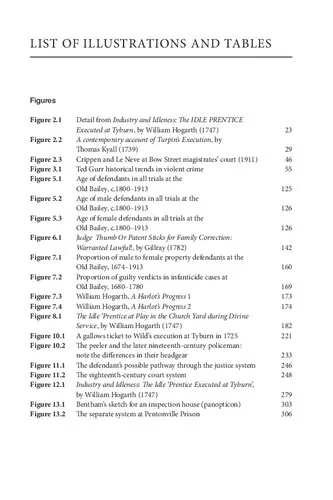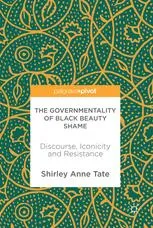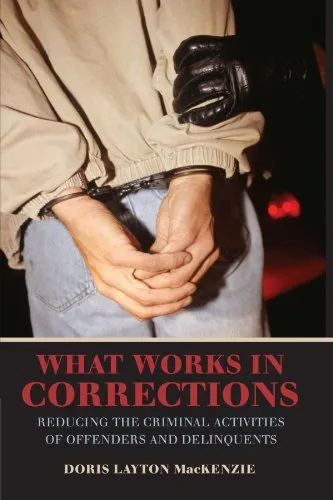Crime, Shame and Reintegration
4.5
بر اساس نظر کاربران

شما میتونید سوالاتتون در باره کتاب رو از هوش مصنوعیش بعد از ورود بپرسید
هر دانلود یا پرسش از هوش مصنوعی 2 امتیاز لازم دارد، برای بدست آوردن امتیاز رایگان، به صفحه ی راهنمای امتیازات سر بزنید و یک سری کار ارزشمند انجام بدینکتاب های مرتبط:
معرفی جامع کتاب "Crime, Shame and Reintegration"
کتاب "Crime, Shame and Reintegration" نوشته جان برایتویت، یکی از آثار تأثیرگذار در زمینه جرمشناسی و نظریات اجتماعی است که به تحلیل دقیق نقش شرم و بازپذیری اجتماعی در کنترل جرم میپردازد. این کتاب با دیدگاهی نوین به بررسی عواملی میپردازد که میتواند به کاهش نرخ وقوع جرم در جوامع کمک کند.
خلاصهای از کتاب
در این کتاب، برایتویت نظریهای را ارائه میدهد که بر اهمیت شرم و Reintegration در فرآیند اصلاح مجرمان تأکید دارد. او بیان میکند که شرمگذاری که با حمایت اجتماعی و Reintegration همراه است، میتواند به کاهش جرم کمک کند. برایتویت ادعا میکند که شرمگذاری اشتباه و تحقیرآمیز، باعث طرد و بیشتر شدن جرم در بین افراد میشود، در حالی که شرمگذاری سازنده میتواند باعث بازگشت موفق افراد به جامعه شود.
مباحث کلیدی کتاب
- توضیح تفاوت بین شرمگذاری ناسازگار و سازگار
- تأثیر Reintegration بر کاهش جرم
- تحلیل ساختاری سیستمهای عدالت اجتماعی و چگونگی اعمال تغییرات مثبت در آنها
نکات کلیدی
- شرم میتواند ابزاری مؤثر برای کنترل جرم باشد، به شرطی که با Reintegration همراه باشد.
- جامعههای که رنج میبرند از طرد اجتماعی بیشتر در معرض افزایش جرم قرار دارند.
- تشویق به بازگشت پذیر اجتماعی به عنوان روشی بهتر از تنبیه سنتی برای کاهش جرم معرفی میشود.
جملات معروف از کتاب
"عملی که بنا بر شرمگذاری انحصاری انجام میشود، تنه به تنه عدم امنیت و انزوا کشیده و جرم بیشتر را میتواند به وجود آورد."
اهمیت این کتاب
کتاب "Crime, Shame and Reintegration" به شکلگیری دیدگاههای جدیدی در جرمشناسی کمک کرده و نشان میدهد که چگونه میتوان با اصلاح رویکردهای جامعه به مجرمان، میزان وقوع جرم را کاهش داد. این اثر، توسط محققان، سیاستگذاران و جامعهشناسان برای تغییرات بنیادین در سیستمهای عدالت جنایی بسیار مورد توجه قرار گرفته است.
Introduction to 'Crime, Shame and Reintegration'
Published in 1989, 'Crime, Shame and Reintegration' by John Braithwaite offered a groundbreaking perspective on crime and societal mechanisms that influence criminal behavior. This book lays the foundation for understanding the powerful role of social mechanisms, particularly the process of reintegrative shaming, to reduce crime rates and promote community healing.
Detailed Summary
In 'Crime, Shame and Reintegration', Braithwaite examines the role of shaming in influencing criminal behavior and differentiates between stigmatizing shame, which alienates individuals, and reintegrative shaming, which fosters forgiveness and healing. The book introduces the concept that societies can manage crime effectively not by punitive means, but by adopting reintegration practices. It talks about how successful societies like Japan have adopted community-based approaches that encourage law violators to reenter the community positively.
Braithwaite argues that all societies use shaming as a social mechanism; however, the impact varies based on whether the shaming is reintegrative or stigmatizing. Reintegrative shaming is characterized by showing disapproval of the crime while maintaining respect for the offender as a person. This practice, as Braithwaite contends, effectively deters future crime and encourages rehabilitation, unlike stigmatizing shame, which can push individuals further into deviant behavior and recidivism.
Key Takeaways
- Understanding the dual nature of shaming as a social control mechanism.
- The comparison between reintegrative shaming and stigmatizing shaming.
- Reintegrative shaming practices contribute to lower crime rates and better social coherence.
- Empirical examples and case studies, including insights from Japanese society, demonstrate the effectiveness of community-oriented approaches to crime reduction.
- Suggestions for implementing reintegrative shaming in Western societies to reform criminal justice systems.
Famous Quotes from the Book
"Crime is most likely when shaming is stigmatizing rather than reintegrative and when opportunities for crime are present."
"The reintegrative shaming perspective argues that shaming can be rehabilitative and restorative when it is followed by efforts to reconnect with the community."
Why This Book Matters
'Crime, Shame and Reintegration' matters because it challenges the traditional punitive approaches of dealing with crime, which often lead to negative societal outcomes such as recidivism and marginalization. By introducing the concept of reintegrative shaming, Braithwaite presents a compelling case for reform in criminal justice systems worldwide, emphasizing the need for rehabilitative over punitive measures.
The book sheds light on the role of communities in the socialization process and how creating supportive environments can significantly impact crime prevention. As societies grapple with increasing crime rates and the limitations of incarceration, Braithwaite's work provides essential insights into alternative methods of crime control that are sustainable, humane, and just.
In essence, John Braithwaite's 'Crime, Shame and Reintegration' is pivotal for policymakers, criminal justice professionals, and sociologists who seek to understand and implement more effective crime reduction strategies through the lens of socio-cultural influences and community engagement.
دانلود رایگان مستقیم
شما میتونید سوالاتتون در باره کتاب رو از هوش مصنوعیش بعد از ورود بپرسید
دسترسی به کتابها از طریق پلتفرمهای قانونی و کتابخانههای عمومی نه تنها از حقوق نویسندگان و ناشران حمایت میکند، بلکه به پایداری فرهنگ کتابخوانی نیز کمک میرساند. پیش از دانلود، لحظهای به بررسی این گزینهها فکر کنید.
این کتاب رو در پلتفرم های دیگه ببینید
WorldCat به شما کمک میکنه تا کتاب ها رو در کتابخانه های سراسر دنیا پیدا کنید
امتیازها، نظرات تخصصی و صحبت ها درباره کتاب را در Goodreads ببینید
کتابهای کمیاب یا دست دوم را در AbeBooks پیدا کنید و بخرید
1338
بازدید4.5
امتیاز0
نظر98%
رضایتنظرات:
4.5
بر اساس 0 نظر کاربران
Questions & Answers
Ask questions about this book or help others by answering
No questions yet. Be the first to ask!
















